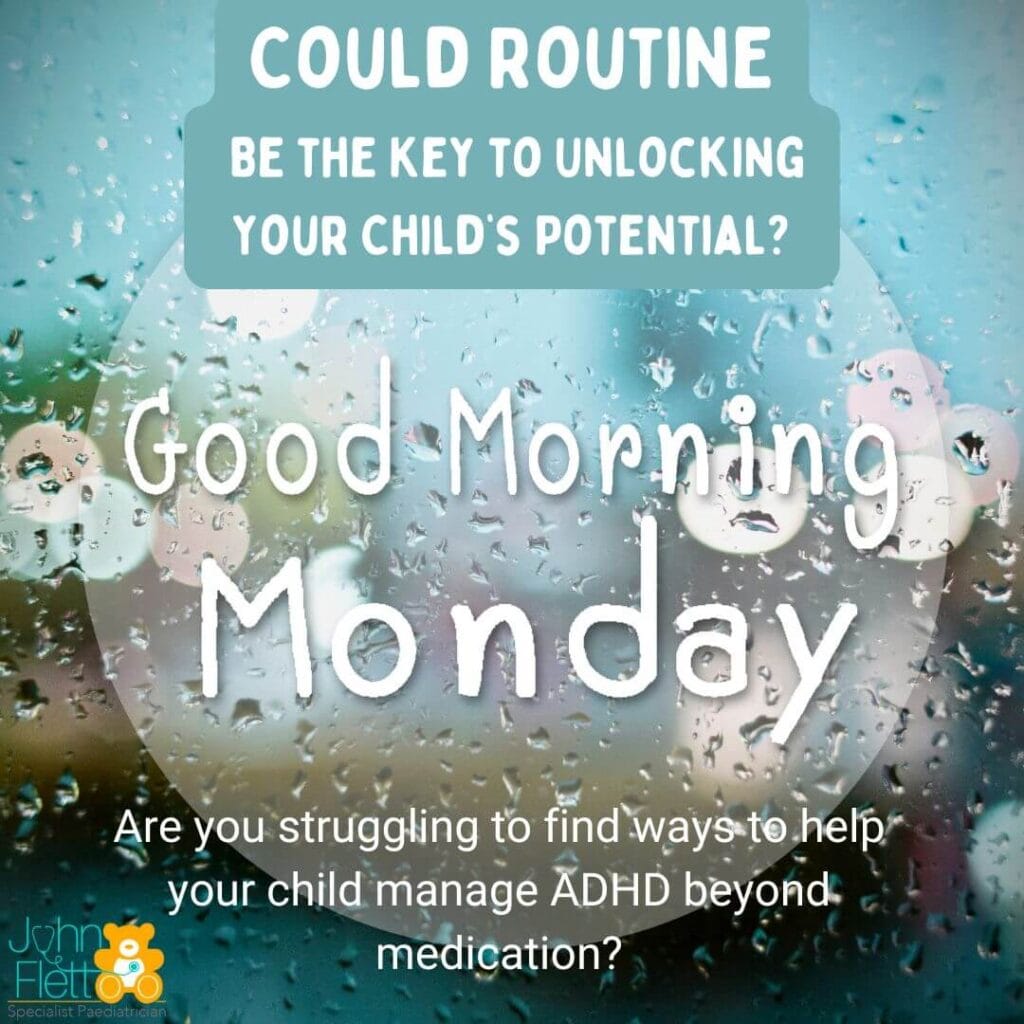🌟 Could Routine Be the Key to Unlocking Your Child’s Potential? 🌟

Are you struggling to find ways to help your child manage ADHD beyond medication? You’re not alone. Discover how a simple yet powerful tool—routine—can transform your child’s ADHD journey and create a more peaceful, productive home environment. 🧠✨
Click here to learn more about the neuroscience behind routines and why they’re essential for children with ADHD. Let’s explore how embracing a holistic approach can empower your family to create lasting change. 💪👨👩👧👦
“Unlocking the Power of Routine in ADHD Management”
Introduction: The Hidden Power of Routine
As parents of children with ADHD, you’ve likely heard about the importance of routine countless times. But what if I told you that routine isn’t just a nice-to-have—it’s a cornerstone of effective ADHD management, grounded in neuroscience and backed by decades of research? In this article, we’ll delve into why routine is so powerful, how it supports the ADHD brain, and practical ways to implement it in your daily life.
The Neuroscience Behind Routine
Understanding why routines are so effective requires a peek into the workings of the ADHD brain. ADHD affects the brain’s executive functions—those that control planning, focus, and impulse control. These functions rely on well-established neural pathways, which can be weak or underdeveloped in individuals with ADHD.
Routines help strengthen these pathways by providing consistent, repeated actions. Over time, this repetition helps the brain to create and solidify connections, making it easier for your child to navigate daily tasks. It’s like building a muscle—the more you use it, the stronger it gets.
Moreover, a structured routine reduces the cognitive load on your child’s brain. By knowing what to expect and when, your child can focus their mental energy on the task at hand rather than being overwhelmed by uncertainty and distractions. This can significantly reduce anxiety and improve their ability to concentrate.
The Benefits of Routine: What the Research Says
Research has shown that children with regular routines experience numerous benefits:
- Improved Behaviour: Routines provide external structure, helping children with ADHD develop better self-regulation skills. This leads to more consistent behaviour and fewer emotional outbursts.
- Enhanced Academic Performance: A consistent homework routine helps children focus better, reduces homework battles, and improves academic outcomes.
- Reduced Family Stress: Knowing what comes next in the day can make life less chaotic and stressful for both parents and children. This predictability fosters a calmer, more harmonious household.
- Better Sleep: Regular bedtime routines help children wind down and fall asleep more easily, which is crucial for managing ADHD symptoms.
Implementing Effective Routines: A Step-by-Step Guide
Creating and maintaining routines might feel overwhelming at first, but the benefits are worth the effort. Here’s how you can start:
- Morning Routine: Start the day with a predictable sequence of activities. Prepare the night before by laying out clothes, packing school bags, and setting alarms. In the morning, guide your child through a checklist to ensure they’re ready without rushing. Avoid distractions like TV or phones that can disrupt the flow.
- After-School Routine: Homework time can be a challenge, but a consistent routine can make it easier. Set a regular start time for homework, ensure all necessary materials are ready, and stay nearby to offer support. Include short breaks to help maintain focus and reduce frustration.
- Dinner and Bedtime Routine: Family meals are an opportunity to connect and reinforce routines. Establish a set time for dinner, and involve your child in setting the table or helping with preparation. A calming bedtime routine—like a warm bath, reading together, and a soothing goodnight ritual—helps your child wind down and prepares them for restful sleep.
How Our Practice Can Help
At Guide Little Minds Assessment Centre, we understand that managing ADHD requires a tailored approach that goes beyond medication. Dr. Stefan Flett and our team are committed to helping families create a holistic ADHD management plan that works for your child’s unique needs. We offer support in establishing effective routines, adjusting treatment plans, and providing resources for teachers to ensure that your child receives the best possible care.
If you’re struggling to implement routines or if it’s been a while since your last visit, we encourage you to reach out. Together, we can review your child’s progress and make any necessary adjustments to their care plan.
Conclusion: A Path to Lasting Success
Routine is more than just a daily schedule—it’s a powerful tool that can transform your child’s ADHD journey. By incorporating consistent routines into your family’s life, you’re not only helping your child manage their symptoms but also setting them up for long-term success. Remember, the journey to managing ADHD is a marathon, not a sprint, and we’re here to support you every step of the way.
Ready to Take the Next Step?
Contact us today to schedule an appointment or to learn more about how we can assist you in creating a supportive, structured environment that helps your child thrive. Together, we can unlock the full potential of your child’s ADHD management.

Responses